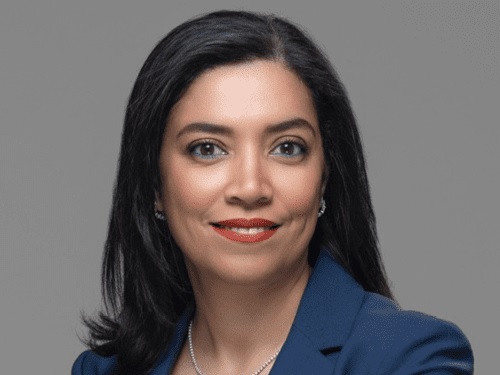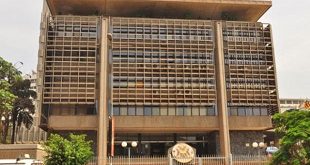
INTERVIEW | RAPHAEL OBONYO | Carbon markets are increasingly dominating conversations about climate change interventions, especially in Africa. The world’s largest carbon market auction was held last June in Nairobi, where more than 2.2 million tonnes of carbon credits sold. Africa Renewal’s Raphael Obonyo spoke to Riham ElGizy, CEO of Regional Voluntary Carbon Market Company (RVCMC) who hosted the event on what it means for Africa.
What is the current situation with carbon credits and market?
The voluntary carbon-trading sector has been growing exponentially, hitting $2 billion in 2022. In recent months, we have seen carbon markets mature rapidly.
Policy frameworks are being drawn up and trading infrastructure is becoming more sophisticated. These developments create a real opportunity for us, particularly in the lead up to the launch of our exchange. We recognise that for the market to reach its potential and play a meaningful role in decarbonization, we must be strict on issues of integrity.
That is why we only trade in high quality carbon credits that have undergone significant due diligence and meet the highest international standards. But to mature further, the market also needs innovation in the form of new ways of channeling climate finance to projects and regions that need it most, such as those in the Global South.
Having held two of our largest carbon credit auctions, we are committed to creating a thriving market for carbon offsets that play a role in tackling climate change while improving livelihoods across the Global South.
Can you tell us briefly about the work of Regional Voluntary Carbon Market?
We are creating a credible voluntary carbon market at speed and at scale – one that has integrity at its core, channels finance towards climate action, and seeks to improve livelihoods across the Global South.
Our aim is to create a robust and successful market for both the generation and use of voluntary carbon credits in the Middle East and North Africa (MENA) region and play a meaningful role in assisting the transition to a low carbon global economy.
What was the voluntary carbon credit auction in Nairobi all about and could you share some of the highlights and outcomes?
In June 2023, we hosted a carbon market auction in Nairobi, Kenya, selling over 2.2 million tonnes of carbon credits, and becoming the world’s largest auction. The auction basket contained high quality CORSIA-eligible and Verra-registered carbon credits, with three quarters of the credits originating from countries across MENA, which is the region we have been targeting for growth.
The projects related to the Nairobi auction were a mix of CO2 avoidance and removal, the majority of which are originated in Africa. This includes the supply of improved clean cookstoves to communities in Kenya and Rwanda, and renewable energy projects in Egypt and South Africa.
Sixteen Saudi regional and international companies took part in the auction, with Aramco, Saudi Electricity Company (SEC) and ENOWA, purchasing the largest number of carbon credits.
The auction was a demonstration of Saudi Arabia’s commitment to tackling climate change in line with the Saudi Green Initiative and Vision 2030.
What efforts are you engaged in to drive funds needed to deliver climate action and improve livelihoods across the Global South?
At RVCMC we believe that voluntary carbon markets will be key to driving both livelihoods and climate action. And these go hand in hand.
Today MENA accounts for only 2% of demand for carbon credits, mostly delivered by the RVCMC. From our base in Saudi Arabia, RVCMC is well-positioned to shape this market going forward and is committed to investing in carbon mitigation projects across the Global South including Africa.
The world’s 50 poorest nations contributed only 1% of emissions but suffer 99% of climate related deaths. We want to make a difference.
There are concerns that the carbon markets risks becoming a failing model especially if there is lack of environmental transparency. What is your view?
We need to tackle climate change using every tool at our disposal. We know that carbon offsets are an important instrument to help accelerate companies’ net-zero strategies. This is a new and fast-growing space, and as with any developing industry, there will be issues and challenges, in this case, questions around varying standards and protocol.
Going forward, developing robust verification methods will be crucial to supporting the efficiency of carbon trading as the industry evolves.
RVCMC is already committed to exclusively facilitating the trading of high-quality carbon credits. Our recent auction only offered CORSI-eligible and Verra-registered credits. The company also works with two separate, independent expert teams to vet projects that contribute credits for sale.
We support efforts to increase transparency and are confident that our track record shows we can continue to build a credible voluntary carbon market at speed and at scale, with integrity at its core.
How can Africa benefit from partnerships in terms of carbon credits economy?
RVCMC is committed to improving livelihoods in the Global South, and Africa is an important market for us, being the source of significant nature and technology-based carbon project opportunities.
We recently committed to developing a relationship with stakeholders in Africa by signing two MoUs: one with Eveready East Africa Plc and another with Carbon Vista Nigeria LP.
We will keep building on these relationships, focusing on securing buyer and seller relationships that will ultimately drive growth across the continent.
 The Independent Uganda: You get the Truth we Pay the Price
The Independent Uganda: You get the Truth we Pay the Price



